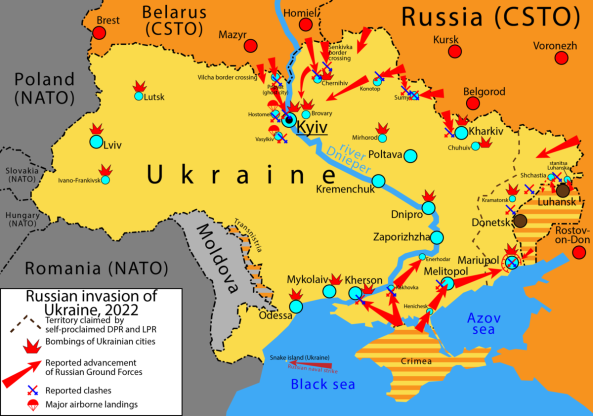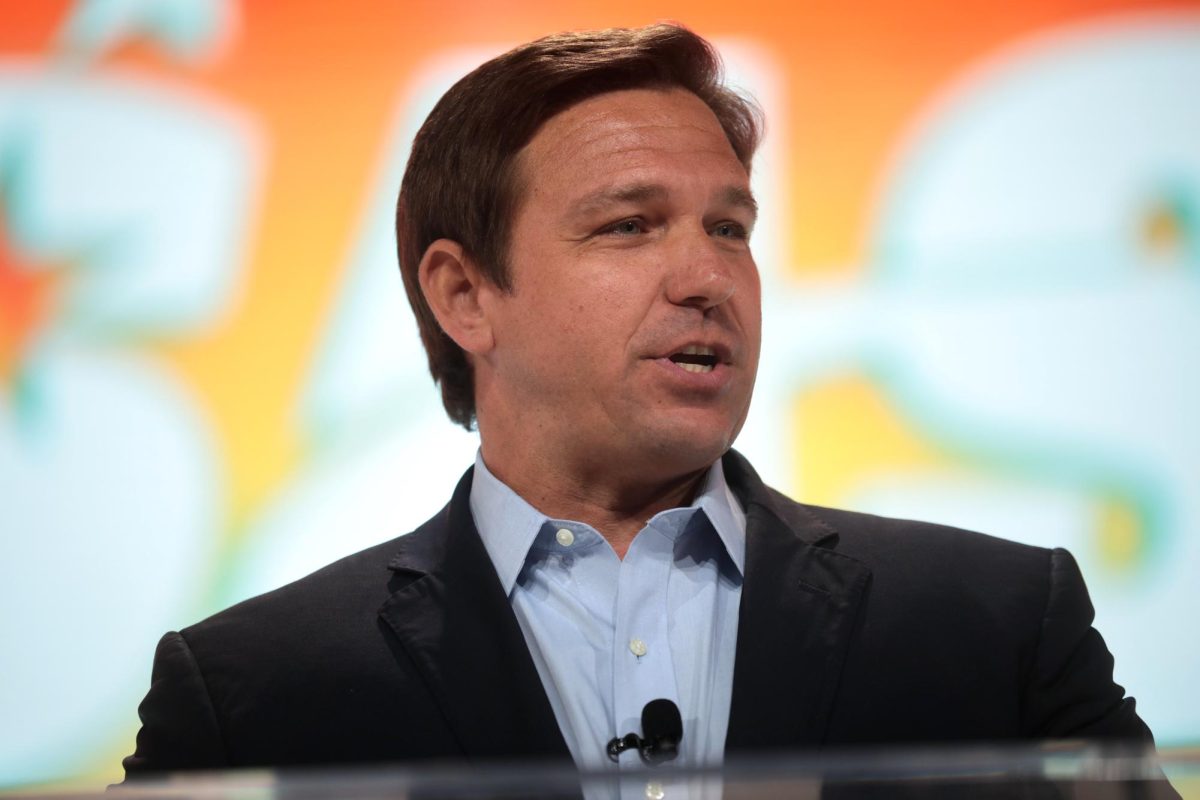
One month after Russia invaded Ukraine, there appears to be no end in sight as Ukraine continues to fend off Russian troops in Kyiv, the capital city. Cities such as Kharkiv have been reduced to rubble. Mariupol, a key port city, is under siege. Millions of people, including children, have been displaced or forced to flee as a result of the invasion.
For many immigrant families, history is repeating itself.
My parents immigrated to the United States from Russia in the early ‘90s. They wanted to find freedom and independence, something that was not available to them behind the Iron Curtain. At that time, Europe was split up into Eastern and Western Blocs. Those who lived in the Eastern Bloc, like my parents, were technologically and economically cut off from surrounding nations, which led to declining infrastructure and higher rates of poverty. Once the Berlin Wall fell in 1989, they were able to finally leave; an opportunity that was not an option for them beforehand.
They left for the same reason that many immigrants leave their home countries: to build a better life for themselves and their families.
Now, the ramifications of Vladimir Putin’s catastrophic decision are being felt overseas. In his deluded attempts to return Russia to its former glory pre-Soviet collapse, Putin aims to reclaim territories he perceives as belonging to Russia. In this context, Ukraine has never been an independent nation, according to him.
“Ukrainians are fighting for all of us,” Alexander Orlov, a Stony Brook professor, and Ukrainian citizen, said in a panel discussion Wednesday hosted by the Marie Colvin Center for International Reporting.
“I talked to my mom yesterday and asked her about her biggest fear, and she said it was the possibility of being forgotten by the West because, at some point, we might get tired of seeing images of human suffering and stop paying attention,” said Orlov.
In the same panel, Stony Brook political science professor Leonie Huddy brought up the “rally effect,” which discusses American attitudes towards global conflicts. The rally effect, as she described, is when the public rallies around the president in a time of war, particularly when American interests are at stake. When it comes to Ukraine, Huddy hypothesizes that many Americans are not as invested in the war because it doesn’t involve them directly.
Due to the highly politicized nature of this war, America has not yet come to a conclusion on the best way to support Ukrainian efforts, despite repeated pleas made by Ukrainian President Volodymyr Zelensky for heightened military aid, particularly in air combat.
I know for me and my family, there is an unwavering sense of hopelessness that accompanies this war. And I know we’re not alone in this sentiment; others feel the same way. Some students are committed to helping out in any way they can.
“My community is not limited to the people that I see on a day to day basis, it’s the people that I’ve met along the way, as the people that I will continue to meet along the way,” Thomas Brinkley, a sophomore biology major at Stony Brook, said. “And so I want to be able to help those in need.”
Brinkley has no personal ties to Ukraine, yet he initiated a school-wide donation drive. He collected clothes, medicine, toiletries and other supplies and delivered them to refugee centers in Bucharest, Romania, where he was planning to visit his father.
While most of us will never know what war feels like, this catastrophe hit close to home for many Eastern European immigrants in the 1980s before the Berlin Wall fell. Citizens who lived in the Eastern Bloc were essentially in the dark; they were technologically and socially isolated from the rest of the world. Arguably, there are some parallels between Russia back then and in the modern-day, as many Russian citizens are being kept in the dark about the true nature of the invasion, being that their media is heavily censored.
Both instances triggered a mass exodus of refugees, but in this case, the Ukrainian refugee crisis has become one of the worst in history, as 3.7 million Ukrainians have escaped to neighboring countries, such as Poland and Hungary.
Putin has been targeting protesters for demonstrating against the war, effectively silencing free speech in all regards. Protesters in Russia are getting arrested for simply holding pieces of paper, since writing the word “war” can be punishable by imprisonment up to 15 years. Thousands of protesters have been arrested and beaten for taking a stand against the false narrative the Kremlin is pushing.
For many people, there is a looming sense of hopelessness and fear that hasn’t gone away since Feb. 24. Every day feels the same — marked by a new tragedy or conflict that does nothing to help alleviate a growing sense of dread at what is to come. As Putin’s crusade continues, thousands of lives are irrevocably changed and altered by his actions. Thus, Ukraine’s pleas should not fall on deaf ears.


















